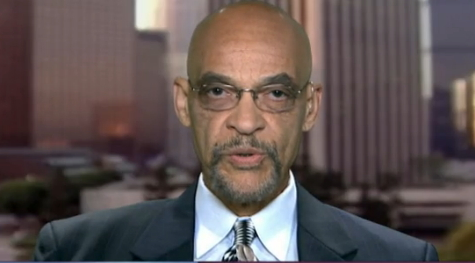Earl Ofari Hutchinson
It wasn’t a good week for the L.A. County Sheriff’s Department. First there was the charge some deputies at some stations sport tattoos that looked suspiciously like, take your pick: gang, white supremacist, or violence promos. Next there was the charge that deputies with dubious records of lying, planting evidence, and other assorted acts of misconduct are routinely protected from disclosure under an archaic, and thoroughly reprehensible, California shield law that erects a near impregnable barrier to finding out anything about their misconduct. Then there was the never-ending charge of racial profiling, harassment and excessive force against sheriff’s deputies. The victims almost always are young African-American and Hispanic males.
None of this is new. The issue of deputies sporting menacing tattoos goes back two decades when the deputies at one station wore “Viking” tattoos. The charge was that the deputies were part of a racist clique within the department who routinely harassed, beat and terrorized Blacks and Hispanics. The tattoos obviously never came off and whether they have any odious racial implication or not is subject to much debate and much concern. In any case, the tattoos should go.
There’s no debate, though, about officers who lie and shade testimony in criminal cases. There are a lot of them, more than 300 to be exact. They have been plopped in a data base of officers who have testified in criminal cases and their testimony is suspect to say the least. The problem is the state shield law that make it near impossible for defense attorneys to get information about their misconduct. The California Supreme Court will decide whether the shield law needs to be scrapped to allow full disclosure of bad behaving deputies. The court should dump the law and the Department should fire any deputy who lies in the court.
L.A County Sheriff Jim McDonnell promises to investigate the tattoos and just exactly what they mean. He has tried to turn over the names of the officers who give tainted testimony but has been blocked. He has promised to rein in the still ridiculously high number of excessive force actions by sheriff’s deputies, almost all unpunished, that for years have plagued the department.
Tackling these problems means immediate and vigorous implementation of the dozens of reform recommendations such as a fully empowered independent civilian oversight commission, getting rid of deputies who brutalize prisoners at the jails and administrators who look the other way, total transparency and accountability on the reform process. And most importantly, eliminating the deeply troubling problem of dubious officer-involved shootings and allegations of racial profiling by deputies.
The department took one step in that direction when it agreed to review and revise policy on how and when officers should use deadly force in civilian encounters. The policy change would emphasize containment and de-escalation, not confrontation and gun play when confronting civilians in situations where there was no direct threat to the officers. This is not enough. There must be real discipline of deputies who used deadly force under highly dubious circumstances.
This is where things fall apart. Bad officers are protected under the law from disclosure of their misconduct, L.A. County District Attorney Jackie Lacey refuses to prosecute the officers involved in bad shootings, and the tattoos remain plastered on the arms of many deputies who may or may not be racist or violent prone. This is tantamount to a license to commit questionable acts of misconduct with impunity.
The good news is that with the revelation again of the tattoos, and the spotlight on excessive force by deputies, community groups have challenged the department to take firm action against the abuses. There has been a slew of media investigative reports that thoroughly document the impotence of the department to do anything about officers who continue to harass, physically assault and even kill under the color of law.
The question as always, though, is what will and can be done to break the continuing and vicious cycle of abuses. Fully implementing the reform proposals is one step. A fully empowered civilian oversight board with full subpoena powers is another. Another is the state legislature moving quickly to change the laws that erect iron clad barriers against disclosure and transparency, and a Supreme Court ruling that immediately removes the shield law. Despite, the arguable progress and good intentions of a department under fire and with a mandate to reform, the sheriff’s department will continue to remain on the hot seat. The demand then is for change—and now.
Earl Ofari Hutchinson is an author and political analyst. His latest book is, Why Black Lives Do Matter (Middle Passage Press) will be released in August. He is a weekly co-host of the Al Sharpton Show on Radio One. He is the host of the weekly Hutchinson Report on KPFK 90.7 FM Los Angeles and the Pacifica Network.

